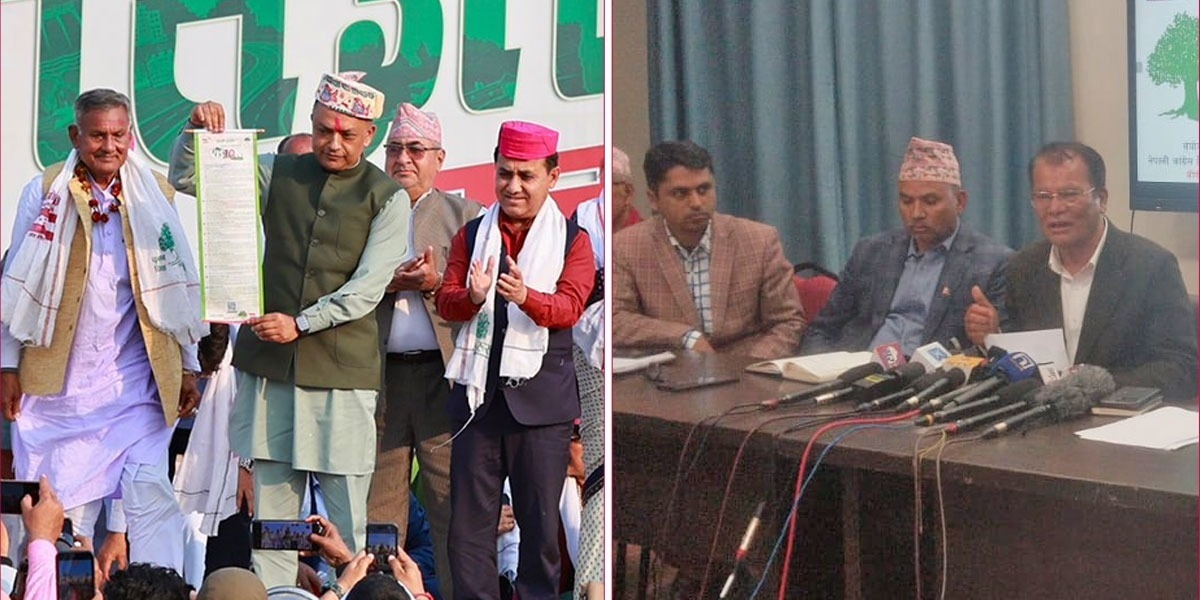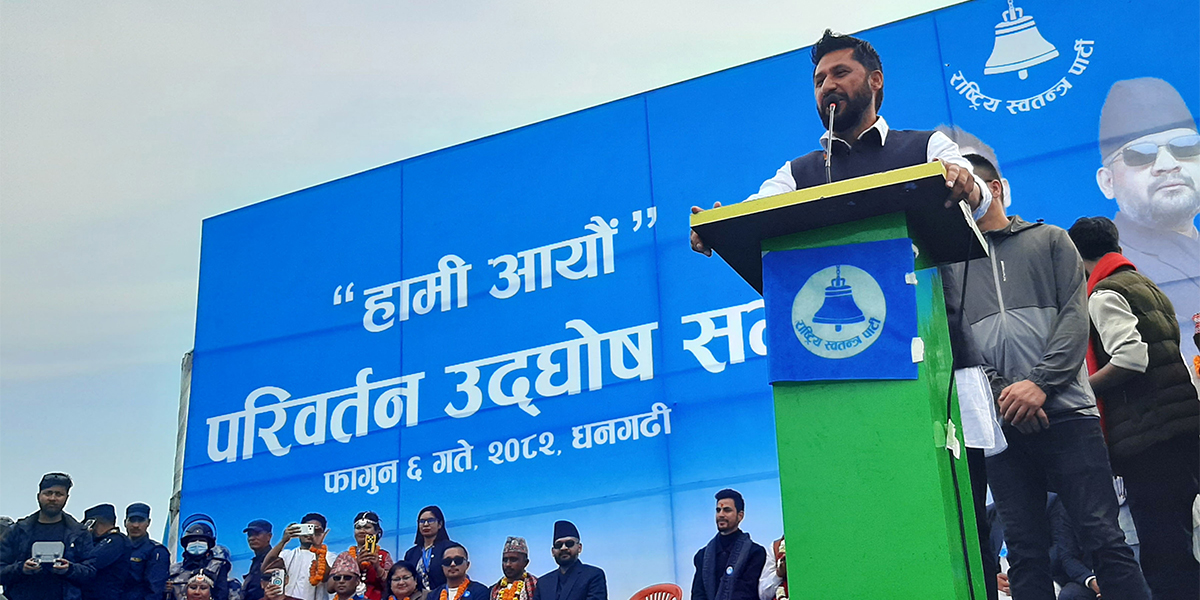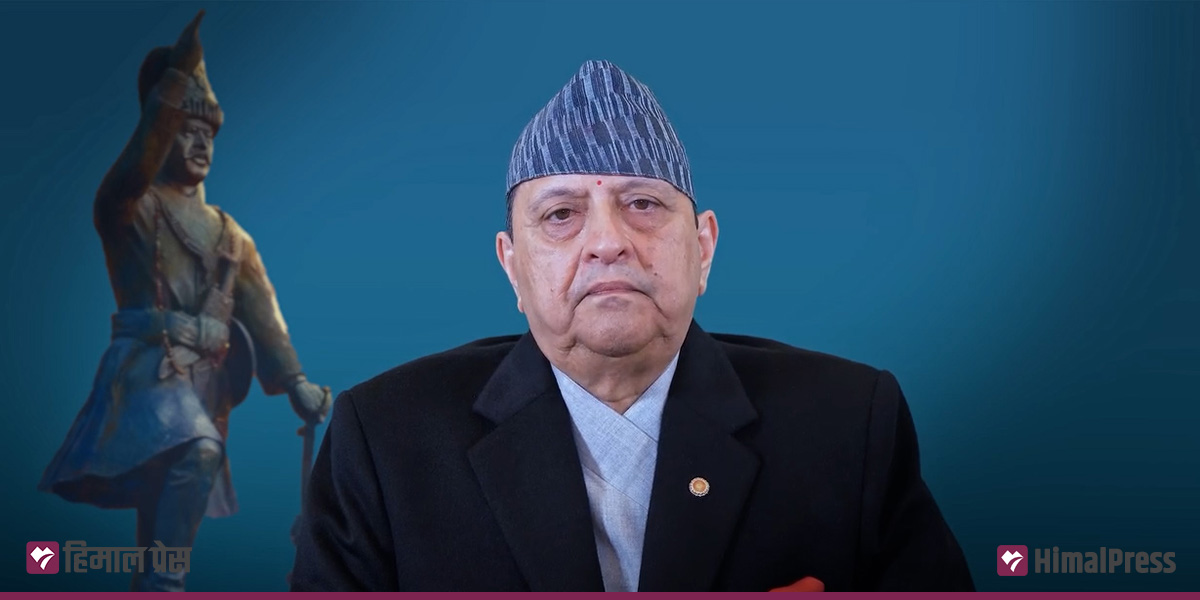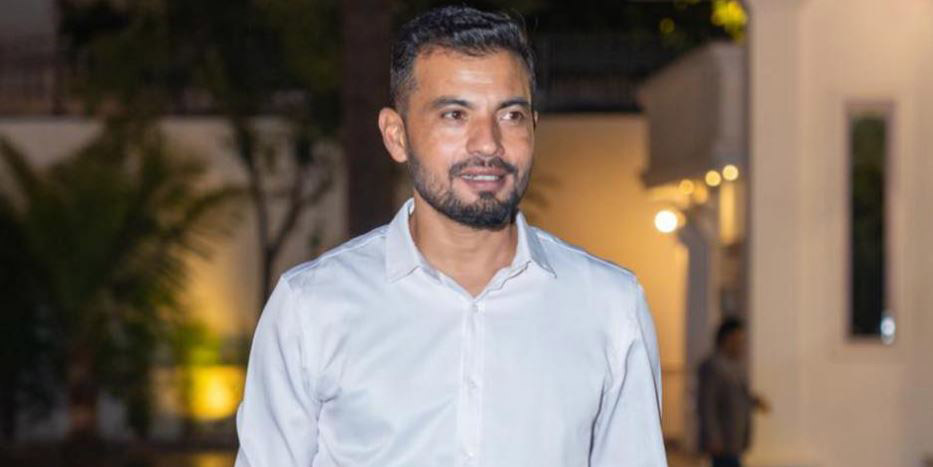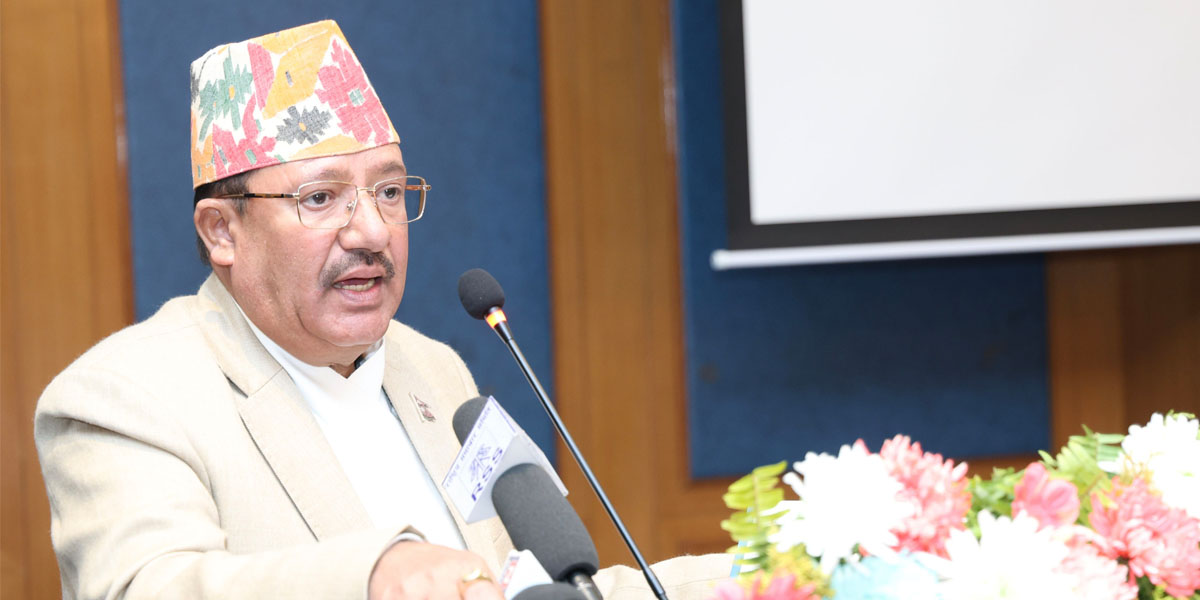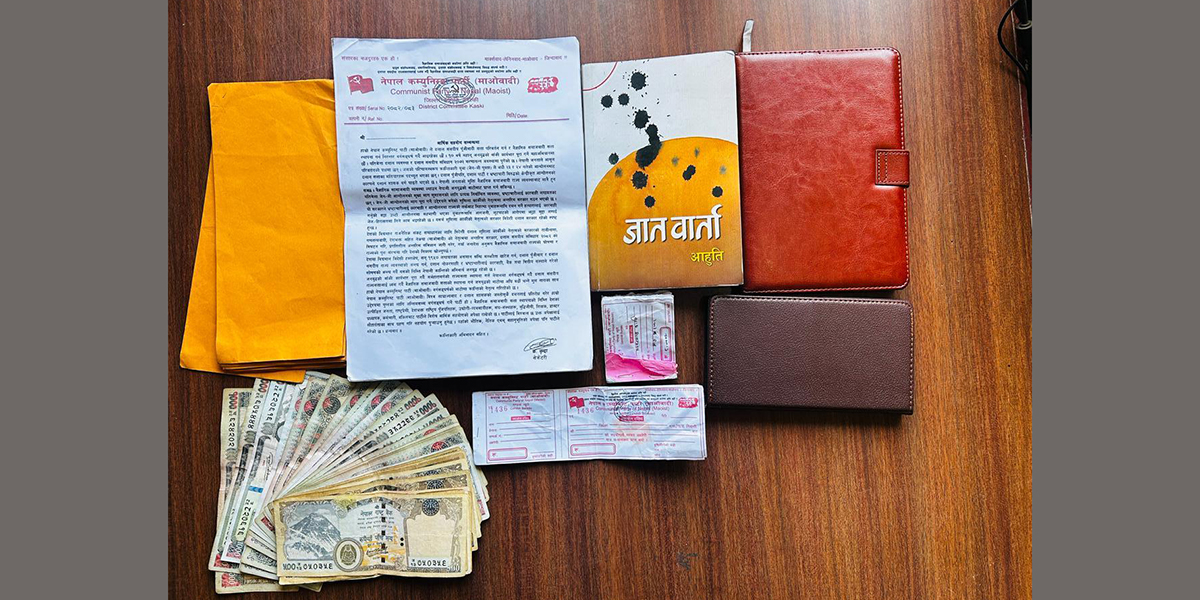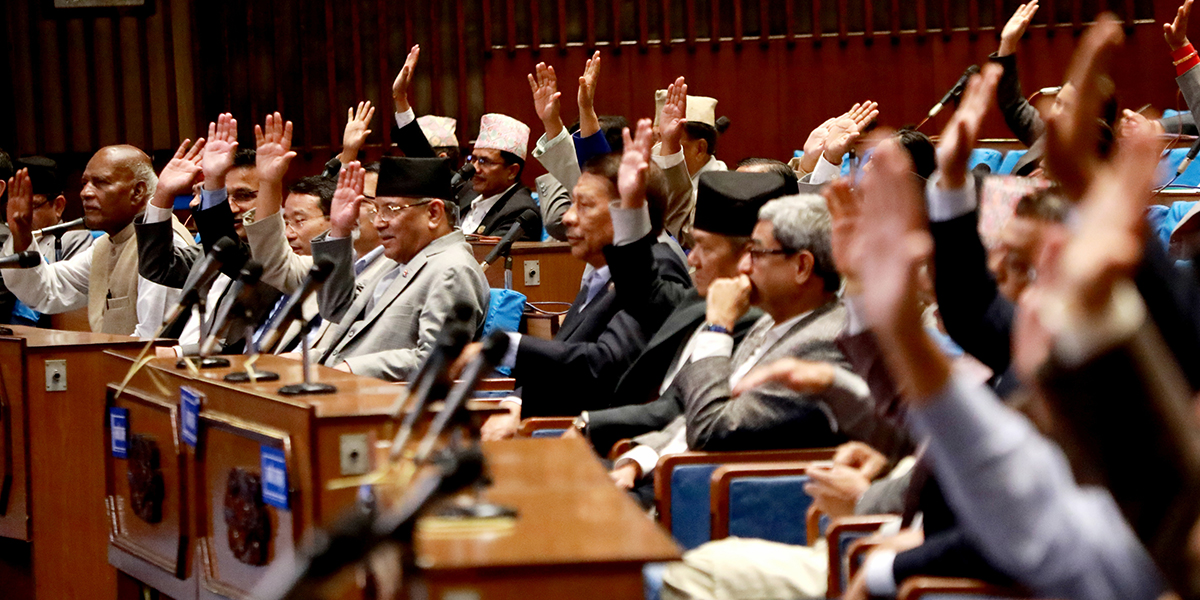 Lawmakers endorse the transitional justice-related bill. Photo: RSS
Lawmakers endorse the transitional justice-related bill. Photo: RSS
KATHMANDU: Conflict victims have expressed mixed reactions to the provisions of the transitional justice-related bill endorsed by the House of Representatives on Wednesday.
While one group has welcomed the passage of the bill, another has expressed dissatisfaction claiming that their suggestions were not addressed.
Victims are divided on issues such as the classification of human rights violations, the definition of crimes and punishment provisions in the bill.
Suman Adhikari, chairperson of the Conflict Victims Common Platform, expressed doubt about victims receiving justice due to the flawed definition of crime in the bill. “The definition of crimes in the Bill is incorrect,” he added.
Adhikari noted that while victims were consulted about the bill, most of their suggestions were not incorporated. He said, “Our concerns about crime classification, definitions, punishments, recommendation processes, and autonomy of the commissions were not heard,” he added.
The bill includes provisions for pardoning even serious crimes. Adhikari explained that human rights violations like murder, torture, and mutilation are classified as ordinary crimes. “The provision for prosecutors to seek punishment for only 25% of offenders is not in line with international practices,” he added.
However, the International Network of Victims and Survivors of Serious Human Rights Abuse and the National Organisation of Wartime Rape Victims have welcomed the passage of the bill. They believe it will help conclude the peace process quickly.
Bhagiram Chaudhary, coordinator of the National Network of Conflict Victims, supported the classification of human rights violations and its provisions for reconciliation and truth-seeking.
Human rights advocates, including senior activist Charan Prasai, however, argue that the bill contains many flaws, particularly in its classification of serious crimes and provisions for amnesty.
Prasai argued that the bill attempts to provide amnesty for all crimes. “The bill seeks to pardon any acts that violate Nepal’s criminal laws, international human rights standards, and humanitarian law. This is wrong,” he said. “The bill makes crimes such as murder, kidnapping and torture pardonable. That is why victims have said that this is not favorable to them.”
The Accountability Watch Committee has also criticized the House of Representatives for missing a historic opportunity to ensure victims’ rights to truth, justice and reparations in the transitional justice process.

 Himal Press
Himal Press 